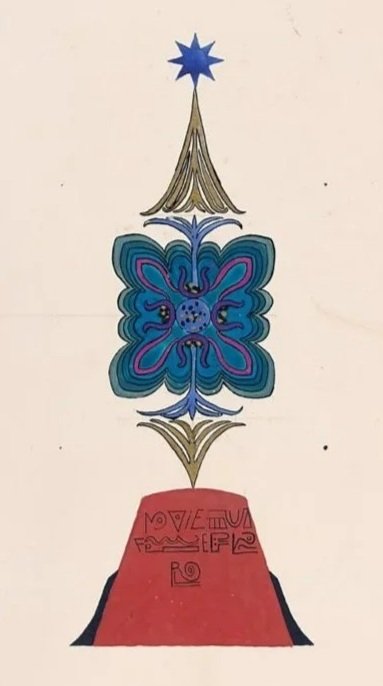Learn to Navigate Your Inner World
Jungian Meditation
Most people live at the mercy of patterns they can't see. This practice teaches you to access the unconscious forces running your life—and work with them directly.
Jungian meditation draws from both Eastern techniques and Carl Jung’s psycho-analysis practices in exploring unconscious, meeting inner figures (shadow, inner child, etc.), and understanding patterns that drive your behavior. It's meditation with psychological depth and practical self-knowledge that not only stabilizes but transforms.
Jungian meditation has deep relevance and deep applicability for bodyworkers, somatic instructors, therapists, depth psychologists, storytellers, public speakers, artists, writers, activists, policy makers, community builders, and all knowledge seekers.Concentration TraininG
Build mental stability through Samatha practice. Learn to hold your mind steady so you can explore safely.
active imagination
Jung's method for dialoguing with your unconscious. Meet and work with inner figures that shape your life.
shadow work
Face what you've rejected in yourself. Learn to withdraw projections and reclaim your wholeness.
inner childhood
Connect with wounded parts of yourself. Do the repair work that changes how you show up today.
Creating Your Temenos
Build your inner sanctuary—a mapped space you can return to and navigate independently.
insight practice
Develop Vipassanā skills to see patterns clearly. Observe what drives you without getting swept away.
Behroz Sabet
MY meditation journey.
Eastern meditation was rewarding but structurally incomplete. After a nine-hour workday, sitting in a class being told to "just observe your thoughts" for ten minutes felt absurd. Traditional monks spend hours preparing—chanting, ritualizing, moving—before they even sit. They build the infrastructure for the practice. We skip all that preparatory work and expect the same outcomes.
I trained in engineering and business, but I've studied psychology and philosophy for over twenty years. My training was always about integration; systems integration, mergers, bringing disparate parts into functional wholes. Jung's work is literally about integration—shadow, anima/animus, self. So I was unknowingly preparing to teach one of the most complex integration projects: the human psyche.
The issue isn't that Eastern meditation doesn't work—it's that we've stripped it of the framework that made it functional. When I blended my psychological and esoteric learnings with meditation practice—creating genuine gnostic experiences—the difference was exponential. Instead of passive observation, there's active descent: meeting the forces driving behavioral patterns, dialoguing with what operates beneath consciousness, integrating what's been fragmented.
A stable mind isn't the goal. It's the necessary foundation for accessing the depths where actual transformation occurs. The shift from passive to active engagement isn't just preferential—it's structural. That's what changes the outcomes.
FAQ’S
-
First, we meet for a free consultation to see if we're a good fit and if you're ready for this work. If we both feel it's right, we start meeting regularly for one-hour practice sessions. You learn techniques progressively—concentration first, then inner exploration, shadow work, and eventually independent navigation. Between sessions, you practice daily (20-30 minutes). Think of it like learning an instrument: ongoing skill development with guidance as long as you need it.
-
People who are psychologically stable, curious about their inner world, willing to face difficult material, and ready for depth work. You need basic emotional regulation and a support system.
This works best for those seeking self-understanding, not quick fixes.
-
No. Complete beginners are welcome. My teaching is from the ground up. If you have experience, great—we'll build on it. What matters is willingness to practice consistently and encounter what emerges.
-
Most meditation teaches you to calm your mind or be present. That's valuable, but incomplete. This goes deeper—you're actively exploring your unconscious, meeting inner figures that drive your behavior, understanding your patterns, and integrating split-off parts of yourself.
Most meditation teaches you to be the witness watching the play. Jungian meditation teaches you to walk onto the stage and dialogue with the characters driving the plot.
It's not about achieving peace or emptying your mind. It's about making the unconscious conscious so you can actually change instead of just feeling temporarily better.
-
No, this is not psychotherapy. It's a psycho-spiritual practice that can be deeply healing but isn't a substitute for mental health treatment. If you're dealing with serious issues, you should have therapeutic support alongside this work.
-
Perfect—you don't need to see clear pictures. Imagination includes sensing, feeling, knowing, or having impressions. Some people are visual, others kinesthetic, some just "know" things. You'll discover your natural way of perceiving.
-
A temenos is your inner sanctuary—a safe, sacred space in your imagination where you do this work. You'll create it in one of our early sessions and return to it throughout the practice. Think of it as your home base for inner exploration.
-
Parts of your psyche that take symbolic form: your guardian (protective defenses), shadow (rejected qualities), inner child (wounded parts), anima/animus (contrasexual qualities). They're not separate entities—they're aspects of you that become visible through active imagination.
-
It can surface difficult material, which is why we go slowly and you need to be relatively stable. We're not digging for trauma, but if it appears, we work with it carefully. If you have mild unprocessed trauma, work with a trauma therapist alongside this practice.
If you're dealing with significant unprocessed trauma, this isn't the right approach yet. -
All sessions are private. First session is free as an assessment. Any subsequent session is $75/hr.
Package of 5 is discounted at %10 - $337
package of 10 is discounted at %15 - $637
Prices exclude applicable tax.

